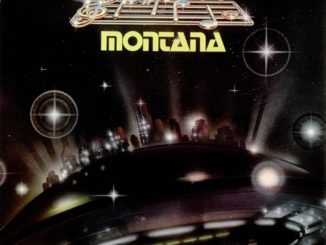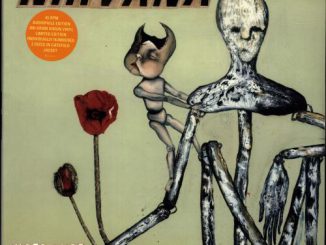Whilst we won’t be venturing into alcohol offsales any time soon, you can rest assured that we have always got a steady stream of rare Vinyl, CDs and Memorabilia from Bob Dylan at eil.com …
here’s the article from the Guardian
…For a man whose Bootleg Series now runs to 13 albums, distilling his own Tennessee liquor seems like a logical next step
Bob Dylan will next month launch a range of whiskeys, hoping to capitalize on growing demand for all things celebrity-tagged.
Dylan’s new project was announced on Saturday. “You don’t always find inspiration,” he mused in a press release. “Sometimes it finds you. We wanted to create a collection of American whiskeys that would each tell a story.”
Bushala, 52, told his story to the Guardian. The project began, he said, when he noticed Dylan, whose Bootleg Series now runs to 13 albums, had filed a trademark application for “bootleg whiskey”. Bushala contacted the enigmatic singer and made his pitch.
Knowing that Dylan is a whiskey aficionado, Bushala decided to approach the project from a whiskey-centric point of view. “That appealed to Bob,” he said. “This is not a vanity project for him. It’s a passion project.”
When it came to a name, the two men “wanted a standalone name for whiskey that could also be a nod and a wink to Dylan”.
Dylan’s songs are not short of whiskey references, among them Copper Kettle (The Pale Moonlight) (“Daddy he made whiskey, my grandaddy he did too / We ain’t paid no whiskey tax since 1792”); Blind Willie McTell (“He’s dressed up like a squire / Bootlegged whiskey in his hand”); Gotta Serve Somebody )“Might like to drink whiskey / Might like to drink milk”); and Moonshiner (“I’ve spent all my money / On whiskey and beer”).

The two men got down to 10 favourites, then agreed to go with a reference to Knockin’ on Heaven’s Door, a hit from the 1973 album Pat Garrett & Billy the Kid which in fact does not refer to whiskey.
“Everyone felt strongly that Heaven’s Door was just a perfect name,” Bushala said, “especially given the imagery we’re using on the bottles” – wrought ironwork from Dylan’s own metalwork foundry in Los Angeles.
Someone as “eclectic and diverse as Bob”, Bushala said, should put out “an evolving collection or portfolio” of whiskeys. To achieve that, he said, he raised $35m from investors.
‘He was after a mood or a feeling’
Dylan’s idea for his own whiskey came from a more down-to-earth source: his earliest incarnation as a Woody Guthrie-esque, riding-the-rails wandering minstrel.
In a statement to the New York Times, the singer said: “I’ve been traveling for decades and I’ve been able to try some of the best spirits that the world of whiskey has to offer. This is great whiskey.”
Bushala said: “There have been spirits and whiskey in his music for as long as he’s been making it, going on 60 years, and in the kind of rural Americana that plays into it. So for sure in his mind, there were elements he was after. But it wasn’t directly articulated.
“He was after a mood or a feeling. He wasn’t after saying, ‘This should taste more smokey or have more corn or rye, or adjust the proof.’”
Dylan is seeking to tap into a booming market: the value of the American whiskey market has grown by 52% over the last five years, to $3.4bn in 2017. Nor is he the first celebrity to attempt to distill profits from hard liquor. Sean Combs’s involvement with Ciroc vodka has helped make the rapper and producer seriously rich while George Clooney last year sold his Casamigos tequila brand to the beverage giant Diageo for as much as $1bn.
Nor, perhaps to the horror of Dylan purists, is this the singer’s first foray into the world of commerce. The singer is a periodic pitchman, endorsing Chobani, Chrysler and even Victoria’s Secret.
“He didn’t sell out,” Bushala said. “This is his brand, and it’s his idea. We just helped him do what he wanted to do. Bob does not want to be face man of the brand and he does not want the packaging to scream ‘Dylan’.”
Dylan’s signature is therefore on the reverse side of the label, Bushala said, making it visible only when the bottle is empty. “He was willing to do that but he’s not going to appearances or bottle signings. He didn’t even pick up his Nobel prize so he’s not going to go out touting this. And that’s great because it’s authentic for Dylan and authentic for the brand.”
With some irony, perhaps, the rules that will govern the success or otherwise of Dylan’s project will, like his whiskey and his music, hark back to America’s past. Liquor distribution in the US is still based on a post-prohibition model, each market tightly controlled by licensed state distributors. Those markets have to be broken into much as folk musicians or promoters once toured local radio stations, seeking precious airplay.
“There are parallels,” Bushala said. “You’re going from account to accounts and hand-selling. You’re going round, knocking on the doors.”
eil.com – the world’s best online store for rare, collectable and out of print Vinyl Records, CDs & Music memorabilia since 1987




Be the first to comment